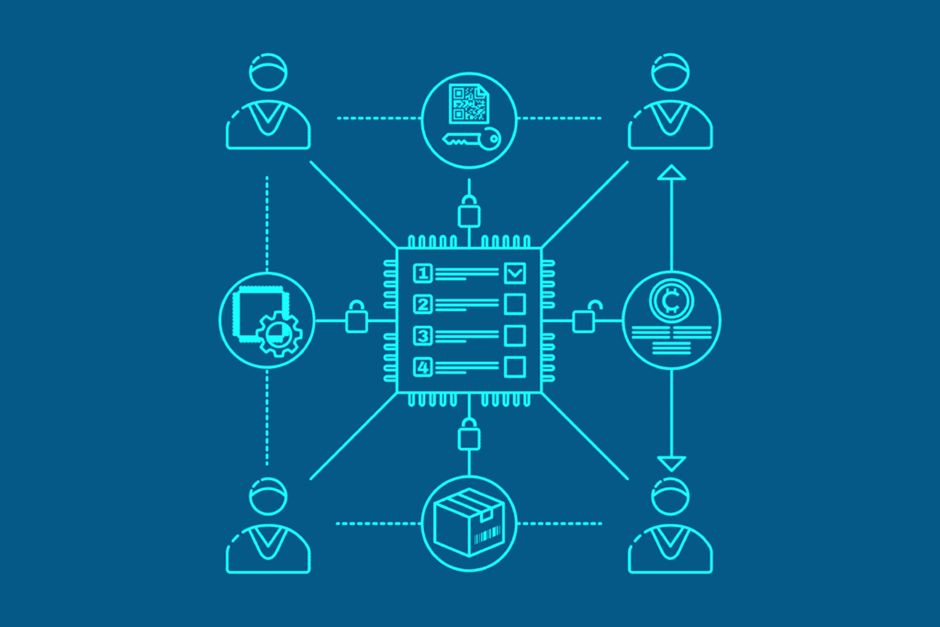
Access to Consumer Rights in the Digital Economy in BRICS Countries
Digital Economy Blog Series: Part 4
This post is the fourth in our series on access to the digital economy in BRICS countries. The first examined access to the internet, the second examined access to decent work, and the third examined access to do digital business in BRICS countries. This series assesses access from the standpoint of different stakeholders, and focuses on the quality of access.
This post analyses the quality of access to consumer rights in the digital sphere in e-commerce countries. Previous posts have already covered access to digital payments; therefore, this post draws attention to consumer protection law for e-commerce in general, online grievance redressal mechanisms, and platform liability for consumer protection. It concludes with observations to help BRICS countries learn from one another’s efforts at consumer protection online.
Brazil
Brazil’s Consumer Protection Code, 1990 (Brazil Consumer Code or BCC) establishes specialised courts and small claims courts to address consumer grievances, in addition to instituting a separate wing of public prosecutors for consumer protection under the Brazilian Public Prosecutor’s office. Further, the BCC allows consumers to approach the court individually or as part of a class-action suit. Additionally, Decree 2181 of 1997 creates the National Consumer Defence System (SNDC), comprising the National Consumer Secretariat (Senacon), municipal, state and federal bodies and civil consumer protection entities. Under these regulations, the SNDC is required to receive, evaluate and investigate complaints raised by consumers.
In order to allow convenient redressal of grievances by consumers against companies, the Brazilian government has launched a consumer portal named ‘consumidor.gov.br’ in June 2014. This online portal allows consumers to raise complaints by providing proof of identity and all data relating to the complaint, and allowing companies to subscribe to this portal by creating an account and undertaking to put in efforts to solve complaints. The portal is managed by the Senacon, with around 80 percent of all complaints being addressed by the relevant business within an average period of seven days. On April 5, 2021, the Senacon notified an ordinance requiring entities beyond a certain threshold which engage in essential services, food delivery, digital platforms, and the top 200 companies with the highest complaints registered in Brazil’s National Consumer Defence Information System, to mandatorily register themselves on the ‘consumidor.gov.br’ portal. The Senacon has reported that the portal had aided in addressing over 2 million complaints between 2014 and 2019, against 538 companies then registered on the portal.
The BCC sets out robust provisions regarding protections for consumers against abusive contracts or terms of contracts that diminish the seller’s liability for any defects in products or services. It further sets out penalties for misleading advertisements and false statements regarding any product or service being offered by a seller, for both the seller and its sponsors. The ‘right to repentance’ is provided under the Consumer Protection Code, wherein consumers have the right to change their minds within 7 days regarding products and services purchased virtually, which requires an immediate refund of the money paid and the termination of the contract.
In 2013, Brazil introduced the Federal Decree No. 7962/2013 (the Brazil E-Commerce Decree), which prescribes supplier obligations in e-commerce transactions and imposes disclosure requirements on e-commerce platform entities. The Brazil E-Commerce Decree requires suppliers to protect the consumer’s right of informed choice and reaffirms the ‘right to repentance’ provided under the Brazil Consumer Code. Further, it requires platforms to publish details regarding the sellers’ name, essential features and risks associated with the product, terms and restrictions on the offer and means to locate or contact the seller virtually or physically. Lastly, the Brazil E-Commerce Decree requires e-commerce contracts to adhere to the conditions offered to the consumer, to preclude any fake listings or dissimilar products.
Russia
The framework law in Russia on consumer protection is the Law of the Russian Federation “On the Protection of the Consumers’ Rights”, 1992 (the “Russia Consumer Law”), supplemented by the rules prescribed in Resolution no. 2463 (“Russia E-Commerce Rules”), notified on 1 January 2021. Further, Article 42(3) of the Russia Consumer Law allows consumer appeals through email using the internet to a portal managed by Russia’s consumer rights regulator Rospotrebnadzor, allowing greater accessibility and grievance redressal for consumers. Chapter II of the Russia Consumer Law prescribes remedies for consumers having received defective products, including replacement, refund, repair, or exchanging for another brand or model at no cost to the consumer. The consumer movement in Russia, excluding financial consumer rights, has declined in recent years, despite the presence of umbrella organisations such as the Russian Financial Consumers Protection Union, the Consumer Union of the Russian Federation and the Confederation of Consumer Societies that work across provinces and districts to spread consumer awareness. The availability of specialised legal aid has resulted in reduced demand for regional consumer rights associations, resulting in their declining numbers.
Article 26 of the Russia Consumer Law prescribes obligations and liability on e-commerce entities facilitating sale of goods or services through remote means to consumers. Under the Russia Consumer Law, consumers have the right to reject delivery of any goods under an e-commerce contract at any time before delivery and seven days after delivery. Additionally, consumers may return goods for up to three months if they were not provided adequate information about the product or its return at the time of delivery. Since 2019, the Russia Consumer Law regulates ‘aggregator websites’ that provide a platform for e-commerce. Additionally, platforms are required to publish their own information (including details such as name, address and company registration number). Platform entities are responsible for the correctness of the details of the seller displayed by the platform, unless the information has been published as provided by the seller without any changes by the platform. Recently, a class action lawsuit has been filed against Geekbrains, a platform selling educational courses, by thirty-one students, alleging that the rules of refund on the platform are contrary to the return timelines provided by the Russia Consumer Law. This lawsuit promises to play a major role in how platform liability and consumer class action lawsuits against platforms could be treated in Russia.
India
The Consumer Protection Act, 2019 (the “Indian CPA”), and its subordinate rules and regulations, primarily the Consumer Protection (E-Commerce) Rules, 2020 (the “India E-Commerce Rules”) regulate consumer rights in the digital economy in India. Under the India E-Commerce Rules, every e-commerce entity must establish grievance redressal mechanisms by appointing and publicising its redressal officers. It further requires redressal officers to respond to complaints within forty-eight hours and to redress the consumer’s grievance within one month of the complaint.
The Indian CPA replaces the erstwhile Consumer Protection Act, 1985 and establishes the Central Consumer Protection Authority (CCPA), a regulatory body tasked with overseeing and investigating consumer rights violations, unfair trade practices and false or misleading advertisements. The Indian CPA sets out clear timelines for disputes to be resolved at the first instance at the district level, and through each appellate process including the state and national levels. Under Section 17 of the Indian CPA, any consumer can file a complaint against a violation of their consumer rights, unfair trade practices or misleading advertisements in writing or through electronic means to the regional district collector or the CCPA.
In 2020, the Department of Consumer Affairs launched the e-Daakhil site, which allows online filings of complaints, responses and appellate documents by consumers and respondent entities. Within months, the government reported that over 5400 cases were migrated to the e-Daakhil platform and over 900 new cases were filed by consumers. India also offers its consumers the opportunity to report consumer grievances through the National Consumer Helpline through telephone calls, SMS messages or registering complaints on government-operated mobile applications. Complaints raised on these platforms can become a basis for further action by the government. For example, the government issued notices to cab aggregator companies on the basis of having received 8740 complaints between January 2021 and July 2022 from consumers on the National Consumer Helpline. Allowing accessible reporting and e-filing mechanisms enable a consumer to exercise their rights under the Indian CPA.
The India E-Commerce Rules regulate interactions over goods or services transacted over digital or electronic networks, and prescribe certain duties to e-commerce entities. E-commerce entities are required to share relevant details of the goods or services being offered for the consumer to make informed choices such as seller details and terms of return, refund, warranty or payment methods. The Rules focus on offering consumers greater information through transparency and allowing consumers to make informed choices. In terms of penalties, the exemption from intermediary liability (typically availed by e-commerce marketplace-based platform entities under the Information Technology Act, 2000) may be revoked by any violations to the India E-Commerce Rules, and additional penalties prescribed in the Indian CPA may apply to e-commerce entities.
The Indian CPA defines consumer rights to include the right of a consumer to be informed about the features of the product or service being offered. Citing this right, the Department of Consumer Affairs held a multi-stakeholder meeting in May 2022 in order to gauge the magnitude of fake reviews on e-commerce platforms, and shall be developing a framework to address this issue. Under Rule 7(2) of the India E-Commerce Rules, an e-commerce entity that sells its own products is explicitly prohibited from falsely representing itself as a consumer to give fake reviews.
China
The primary legislation on consumer protection in China is the Law of the People’s Republic of China on The Protection of the Rights and Interests of Consumers, 1993 (“China Consumer Law”), along with the Advertising Law of the People’s Republic of China, 1995 and the E-Commerce Law of the People’s Republic of China, 2018 (“China E-Commerce Law”). The China Consumer Law regulates the rights of consumers transacting goods and services for daily consumption, the liabilities of business operators over product or service defects, and standard contractual clauses. Under Article 39 of the China Consumer Law, a consumer is offered various ways to resolve disputes with business operators. This includes negotiating settlements, mediating through a consumer rights organisation, complaints to the relevant administrative department, and court or arbitration proceedings. In 2016, the erstwhile State Administration for Industry and Commerce had launched a consumer redressal platform named ‘12315’, offering a website platform and hotline for consumers to file complaints. In 2021, the 12315 platform reportedly handled over 23 million complaints, helped recover 5.5 billion yuan and had an average complaints processing timeline of 16 days.
The China Consumers’ Association (“CCA”), China’s largest consumer rights organisation, also aids consumers in filing complaints and seeking refunds. Under Article 47 of the China Consumer Law, the CCA and other provincial consumer rights organisations can file public interest litigation on behalf of consumers as per the China Consumer Law. The consumer movement in China has seen great growth in recent years, with increased boycotts and protests organised by consumers based on the political views of companies operating in China. Consumer protests on deceptive advertising, sub-standard quality of goods and food fraud have been recorded in China.
Article 29 of the China Consumer Law sets out principles of lawfulness, consent, fairness and necessity to data collection by business operators, and imposes liabilities on online trading platforms. In the event of harm to a consumer’s rights or interest, Article 44 of the China Consumer Law requires online trading platforms to provide the name and valid contact details of the business operator, or offer compensation in lieu of the seller. The online platform can later seek reimbursement from the seller.
The E-Commerce Law regulates e-commerce operators and e-commerce platform operators, including provisions for their operations, the conclusion and performance of e-commerce contracts, and e-commerce dispute resolution. Under Article 38, e-commerce operators may be jointly liable along with sellers for any harm to a consumer which the e-commerce operator should have known violates consumer rights or interests. Further, e-commerce operators are required to share liability for harms arising from health-related goods or services, if the e-commerce operator failed to undertake diligence on the seller or their services. The E-Commerce Law lays out detailed provisions regarding reviews, in line with the principle of transparency. Article 17 of the E-Commerce Law particularly prohibits the use of made-up transactions or fake reviews to mislead consumers. Under Article 39, e-commerce operators are mandated to set up rating or reviewing systems to allow feedback from consumers, and cannot delete any reviews on goods or services sold on their platform.
South Africa
Consumer protection in South Africa is governed by the Consumer Protection Act, 2008 (“South Africa Consumer Law” or “SACL”) and the Electronic Communications and Transactions Act, 2002 (“South Africa E-commerce Act” or “SEA”). South Africa has also recently passed the Cybercrimes Act, 2020, which regulates cybercrimes previously under the ambit of the SEA. Under Section 70 of the SACL, a consumer may choose between various grievance redressal mechanisms, including complaints with accredited industry-specific ombuds, consumer courts or alternate resolution through arbitration, conciliation or mediation. Section 85 of the SACL establishes the National Consumer Commission for investigating complaints received from consumers or initiated suo moto. Section 78 of the SACL authorises accredited consumer protection groups to commence collective action on behalf of consumers under the provisions of the SACL. Ombuds are constituted for specific industry sectors, such as the consumer goods sector, the credit bureau sector and the banking sector. These ombuds assist the consumer by receiving complaints through their websites and offering their services to resolve disputes. Each ombud sets out variable timelines in their codes of conduct, such as 30 days for the motor vehicles ombud or 60 days for the consumer goods ombuds.
The consumer rights enshrined in the SACL have developed from South Africa’s constitutional values of equality, privacy and bodily integrity. In 2021, the National Consumer Commission received over 1900 complaints relating to violations of COVID-19 pricing regulations on essential commodities such as face masks, sanitizers and flu medication. This level of consumer participation was encouraged by the use of radio campaigns, social media handles and a toll-free helpline to aggregate consumer complaints.
The SACL expressly protects and regulates several consumer rights, including the rights of consumers to equality, privacy, responsible marketing, fair and reasonable terms and conditions, suppliers’ accountability, and redress. Section 22 of the SACL requires suppliers to disclose any information required in a plain manner, keeping in mind the ease of understanding for a consumer.
Under Section 43 of the SEA, e-commerce suppliers must make certain mandated disclosures such as the name and contact details of the supplier, any code of conducts it adheres to, and a complete description of the product and transaction between the supplier and the supplier. The SEA requires sellers to execute these transactions within thirty days, while permitting consumers to cancel the agreement within seven days. The SEA and the SACL do not set out specific obligations for platform liability for e-commerce transactions. Other than specific obligations on suppliers using electronic means to complete transactions, general consumer protection regulations apply for all other aspects of e-commerce transactions.
Conclusion
All BRICS countries have made efforts to extend consumer rights to the online sphere. All ascribe some liability to platforms, while some liability remains with sellers on these platforms – drawing the line between the two is a complex and contextual question which is still being resolved. China and South Africa have central laws but differences in the treatment of sellers and/or platforms across different sectors, depending on the risk of harm, the urgency of redressal, sectoral regulatory familiarity, etc.
As commerce has moved online, so has consumer grievance redressal. Online methods of grievance redressal have allowed BRICS countries to collect data on complaints and better analyse patterns. This has sometimes led to action against businesses and even policy change. Consumer rights movements are on the wane in general, but the incorporation of consumer rights’ organisations into the law might assist consumers in taking action against large platforms when appropriate.
The authors would like to thank Divij Poddar for his valuable research assistance towards this post.




